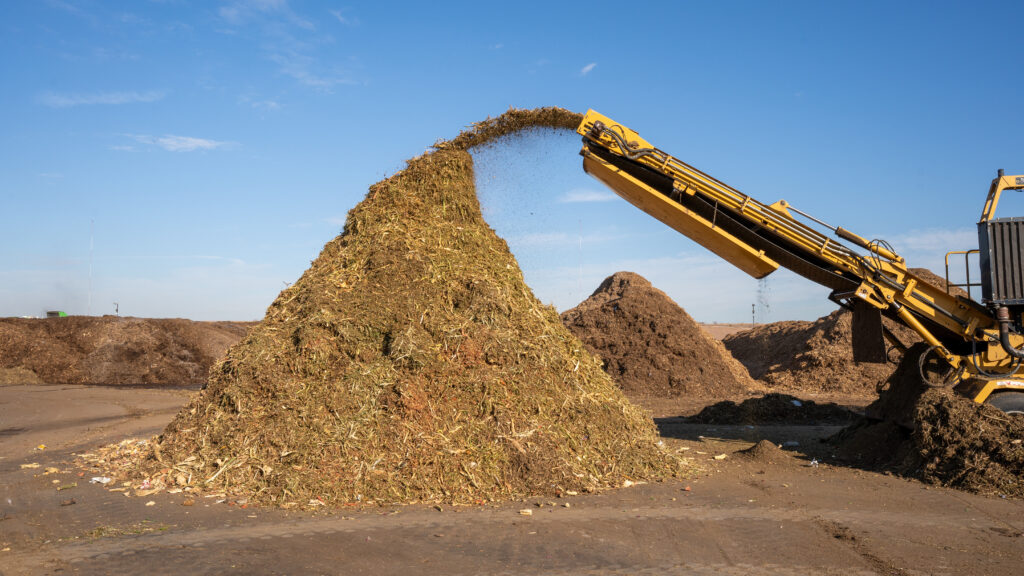Walmart Taps Denali’s ‘Depackaging’ Solution to Recycle Food Waste in 1,400 Stores
4 Mins Read
In its efforts to reduce food waste, Walmart has teamed up with organics recycler Denali to bring repackaging technology to over 1,400 stores.
As it moves towards its global zero-waste goal, America’s largest retailer has introduced a new tech solution to reduce the amount of expired food going to landfill.
As part of an ongoing partnership with Arkansas-based organic recycling company Denali, the retail giant is installing repackaging technology at more than 1,400 Walmart stores and Sam’s Clubs in over 16 US cities.
Called Zero Depack, the programme aims to keep food past its sell-by date out of the waste stream by repurposing it into useful products for farmers or converting it into energy with anaerobic digesters. The solution streamlines the unpackaging process of the expired food, separating 97% or more of all trash from organic food waste.
Denali’s machines have increased the volume of potentially reusable organic content from participating locations by over 60%, while reducing compactor trash by around 12%. This will lead to “cleaner waste streams, happier associates, and a host of potential sustainability opportunities”, according to RJ Zanes, VP of facility services at Walmart US.
“The associates’ role in sustainability has become more efficient,” he wrote in a company post. “They just toss the item in the receptacle, and Denali’s technology separates the food from its packaging material with impressive accuracy.”
The partnership streamlines “how we manage unsalable food while helping reduce food waste”, said Kathleen McLaughlin chief sustainability officer at Walmart. “It’s a great example of how innovation can help make the more sustainable action the default action for our associates,” she added.
How Denali’s depackaging technology works

Denali is providing food waste recycling solutions to all 4,700 Walmart locations in the country, helping the retailer inch closer to its target of cutting food waste in half by the end of this decade.
In the US, half of all food waste generated by retail goes to landfills. This is where Denali, which recycles over a billion pounds of food waste every year, comes in. Once Walmart employees remove out-of-date or damaged food from the display, they weigh and collect all the unsold items – from produce, meat and dairy to bakery products and packaged foods – in a designated area at the back of the store.
Here, they dump all the food in a Denali bin, which is picked up by trucks, weighed, cleaned and emptied. The food waste is then transported to a network of depackaging facilities to mechanically shred or compact the food and separate it from the packaging.
The food is then shredded into slurry, which can be mixed with other materials to make compost and animal feed, or taken to anaerobic digesters to turn into energy. As for any non-biodegradable packaging, Denali says it is “removed and disposed of appropriately”.
The depackaging machines allow Denali to recycle 1.5 million pounds of food waste each day, with an estimated 500 million pounds of expired food products, recalled items, food scraps, etc. turned into compost, fertilisers, animal feed and clean energy every year.
“The efficiency gained is not lost on our operators,” wrote Zanes. “On a recent trip to an organic waste recycling facility, they saw that a single Denali truck had collected organic waste from 18 different Walmart stores, weighing in at a whopping 11 tons. Much of that organic waste has the potential to become something more valuable, including a nutrient-rich product for farmers.”
Walmart’s food waste ambitions match federal strategy

Surplus food accounts for 38% of America’s supply, while a third of all food goes to waste, according to data by ReFed. This waste accounts for 58% of methane emissions from solid municipal waste landfills. It’s also the single largest volume of material sent to landfills and incinerators, causing emissions equivalent to those of over 50 million gas-powered cars.
Walmart is part of the 10x20x30 initiative, which involves the 10 largest food retailers engaging 20 of their priority suppliers to halve food loss and waste by 2030. The supply chain scheme also sees the companies work to reduce in-store food loss and waste.
The company is also part of the US Food Loss and Waste 2030 Champions pledge, a group of 50 businesses (also including Starbucks, Kroger, Unilever and Hilton) that have matched the federal government’s commitment to cut food waste in half by the end of the decade.
Wasted food is responsible for 8-10% of the world’s emissions, and results in $1T in economic losses. Recognising this problem, the Biden-Harris administration released the US’s first national strategy to address food waste and loss in June.
The plan provides goals for businesses and consumers to prevent wastage, increase recycling, reduce emissions, and save money, with initiatives like extending the shelf life of foods, expanding donations, enhancing local upcycling infrastructure, and developing a national consumer education campaign.
Despite lagging behind similar laws from state governments and other countries, the strategy was described as “a good first step” by ReFED head Dana Gunders. One of its objectives is to increase recycling rates of all organic waste, which ties well into Walmart’s collaboration with Denali.
By the end of 2022, Walmart had slashed food waste by 12% from a 2016 baseline, diverting over 900 million pounds of waste to composting, animal feed, anaerobic digestion, and biochemical processing, as well as donating more than 760 million pounds of food globally.



